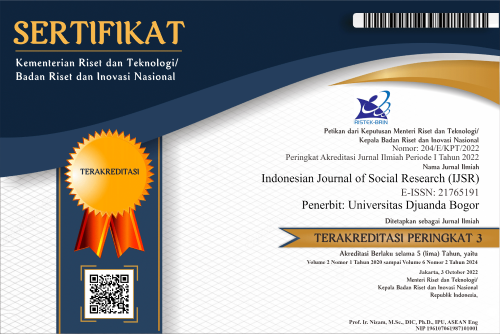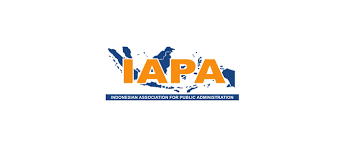Development of Traditional Game-Based Mathematical Tools for Elementary School Students
Abstract
This research and development aim to 1) determine the feasibility of developing mathematics learning media using traditional game-based mathematical tools and 2) determine the attractiveness of students' responses to the development of mathematics learning media using Traditional game-based mathematical tools. This research was carried out using the Research and Development (R and D) method using the modified Borg and Gall development procedure, and data collection techniques using a validation questionnaire sheet. The instrument used was a validation questionnaire sheet to determine the feasibility of the module and a questionnaire for student responses to find out the interest. Data analysis techniques used in research and development are quantitative descriptive to process data in the form of scores from the validator's assessment and student response, while qualitative descriptive to describe the data in the form of commentary suggestions for improvement from the validator. Based on the results of the validation of the development of mathematics learning media using the Traditional game-based mathematical tools, an average score was obtained; (1) the feasibility of developing mathematics learning media using traditional game-based mathematical tools results of the validation of material experts obtained an average of 3.73, on linguistic aspects obtained an average of 3.64, on the aspect of feasibility evaluation obtained an average of 3.66, on media experts obtained on average (aspects of media efficiency obtained an average of 3.87, (2) attracting the development of mathematics learning media using the traditional game-based mathematical tools students' responses obtained an average score of 3.61 in the "very interesting" criteria.
References
Barrett, D., & Twycross, A. (2018). Data collection in qualitative research. Evidence-Based Nursing, 21(3), 63–64.
Braun, V., Clarke, V., Boulton, E., Davey, L., & McEvoy, C. (2021). The online survey as a qualitative research tool. International Journal of Social Research Methodology, 24(6), 641–654.
Dick, W., Carey, L., & Carey, J. O. (2005). The systematic design of instruction.
Imswatama, A., & Lukman, H. S. (2018). The effectiveness of mathematics teaching material based on ethnomathematics. International Journal of Trends in Mathematics Education Research, 1(1), 35–38.
Kawuryan, S. P., Hastuti, W. S., & Supartinah, S. (2018). The influence of traditional games-based and scientific approach-oriented thematic learning model toward creative thinking ability. Cakrawala Pendidikan, 1, 237921.
Miles, M. B., Huberman, A. M., & Saldaña, J. (2018). Qualitative data analysis: A methods sourcebook. Sage publications.
Monawati, M., & Elly, R. E. (2017). Korelasi persepsi siswa terhadap pembelajaran matematika dengan hasil belajarnya di kelas v sd negeri i pagar air aceh besarkorelasi persepsi siswa terhadap pembelajaran matematika dengan hasil belajarnya di kelas v SD Negeri i pagar air aceh besar. Jurnal Ilmiah Mahasiswa Pendidikan Guru Sekolah Dasar, 2(1).
Mukhtar dan Rusmini. (2005). Pengajaran Remedial: Teori dan Penerapannya dalam Pembelajaran. Jakarta: PT Nimas Multima
Rusmiarti, R., Hermansyah, H., & Selegi, S. F. (2022). The Effectiveness of Online Learning Using Information Search Methods on Learning Outcomes of 5th Grade Science Subjects at Kemala Bhayangkari Elementary School. Buana Pendidikan: Jurnal Fakultas Keguruan Dan Ilmu Pendidikan Unipa Surabaya, 18(1), 18–25.
Sukadi, G. P. (2006). Guru Masa Depan.
Sulistyorini, S. (2007). Model pembelajaran IPA sekolah dasar dan penerapannya dalam KTSP. Yogyakarta: Tiara Wacana.
Sumilat, J. M., Tuerah, R. M., & Setiawan, B. (2022). The Utilization of Online Media in Calculation Operations Mathematics Learning in Elementary School Students. Journal of Educational and Social Research, 12(3), 90–90.
Taber, K. S. (2018). The use of Cronbach’s alpha when developing and reporting research instruments in science education. Research in Science Education, 48(6), 1273–1296.
Zulela, M., Neolaka, A., Iasha, V., & Setiawan, B. (2022). How is the Education Character Implemented? The Case Study in Indonesian Elementary School. Journal of Educational and Social Research, 12(1), 371–371.
Copyright (c) 2022 Indonesian Journal of Social Research (IJSR)

This work is licensed under a Creative Commons Attribution-ShareAlike 4.0 International License.
The Authors submitting a manuscript do so on the understanding that if accepted for publication, copyright publishing of the article shall be assigned/transferred to Indonesian Journal of Social Research (IJSR) Universitas Djuanda as Publisher of the journal. Upon acceptance of an article, authors will be asked to complete a 'Copyright Transfer Agreement'. An e-mail will be sent to the corresponding author confirming receipt of the manuscript together with a 'Copyright Transfer Agreement' form by online version of this agreement.
Indonesian Journal of Social Research (IJSR) Universitas Djuanda, the Editors and the Editorial Board make every effort to ensure that no wrong or misleading data, opinions or statements be published in the journal. In any way, the contents of the articles and advertisements published in the Indonesian Journal of Social Research (IJSR) Universitas Djuanda are sole and exclusive responsibility of their respective authors and advertisers.
Remember, even though we ask for a transfer of copyright, our journal authors retain (or are granted back) significant scholarly rights as mention before.
The Copyright Transfer Agreement (CTA) Form can be downloaded here: Copyright Transfer Agreement-IJSR 2020
The copyright form should be signed electronically and send to the Editorial Office e-mail below:
Dr. Rasmitadila, M.Pd (Editor-in-Chief)
Universitas Djuanda
Jl. Tol Jagorawi No.1, Ciawi, Kec. Ciawi, Bogor, Jawa Barat 16720
Website: http://journal.unida.ac.id/index.php/IJSR/index
Email: ijsr@unida.ac.id





4.png)



